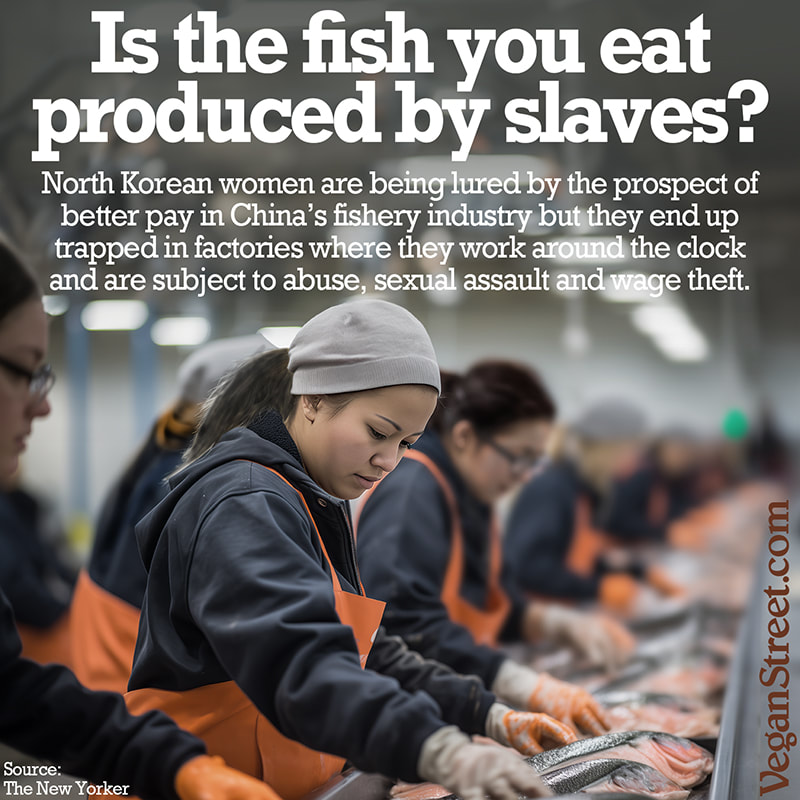Impoverished women in North Korea are promised factory jobs in China at much higher wages than they can earn locally. But when they reach these factories, the reality is far different than the promise.
"The workers, all of whom are women, described conditions of confinement and violence at the plants. Workers are held in compounds, sometimes behind barbed wire, under the watch of security agents. Many work grueling shifts and get at most one day off a month. Several described being beaten by the managers sent by North Korea to watch them. 'It was like prison for me,' one woman said. 'At first, I almost vomited at how bad it was, and, just when I got used to it, the supervisors would tell us to shut up, and curse if we talked.' Many described enduring sexual assault at the hands of their managers.
"Although it's illegal in the U.S. to import goods made with North Korean labor, the law can be difficult to enforce. Some eighty per cent of seafood consumed in America, for example, is imported, and much of it comes from China through opaque supply chains. To trace the importation of seafood from factories that appear to be using North Korean labor, my team reviewed trade data, shipping contracts, and the codes that are stamped on seafood packages to monitor food safety. We found that, since 2017, ten of these plants have together shipped more than a hundred and twenty thousand tons of seafood to more than seventy American importers, which supplied grocery stores including Walmart, Giant, ShopRite, and the online grocer Weee! The seafood from these importers also ended up at major restaurant chains, like McDonald’s, and with Sysco, the largest food distributor in the world, which supplies almost half a million restaurants, as well as the cafeterias on American military bases, in public schools, and for the U.S. Congress."
Our source for this meme is The New Yorker magazine
"The workers, all of whom are women, described conditions of confinement and violence at the plants. Workers are held in compounds, sometimes behind barbed wire, under the watch of security agents. Many work grueling shifts and get at most one day off a month. Several described being beaten by the managers sent by North Korea to watch them. 'It was like prison for me,' one woman said. 'At first, I almost vomited at how bad it was, and, just when I got used to it, the supervisors would tell us to shut up, and curse if we talked.' Many described enduring sexual assault at the hands of their managers.
"Although it's illegal in the U.S. to import goods made with North Korean labor, the law can be difficult to enforce. Some eighty per cent of seafood consumed in America, for example, is imported, and much of it comes from China through opaque supply chains. To trace the importation of seafood from factories that appear to be using North Korean labor, my team reviewed trade data, shipping contracts, and the codes that are stamped on seafood packages to monitor food safety. We found that, since 2017, ten of these plants have together shipped more than a hundred and twenty thousand tons of seafood to more than seventy American importers, which supplied grocery stores including Walmart, Giant, ShopRite, and the online grocer Weee! The seafood from these importers also ended up at major restaurant chains, like McDonald’s, and with Sysco, the largest food distributor in the world, which supplies almost half a million restaurants, as well as the cafeterias on American military bases, in public schools, and for the U.S. Congress."
Our source for this meme is The New Yorker magazine
Meme, Slavery, North Korea, China, Seafood, Sealife, Fishery, Women, Forced Labor, Sexual Abuse
